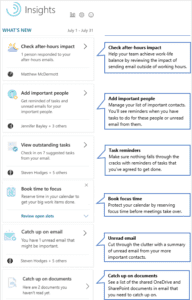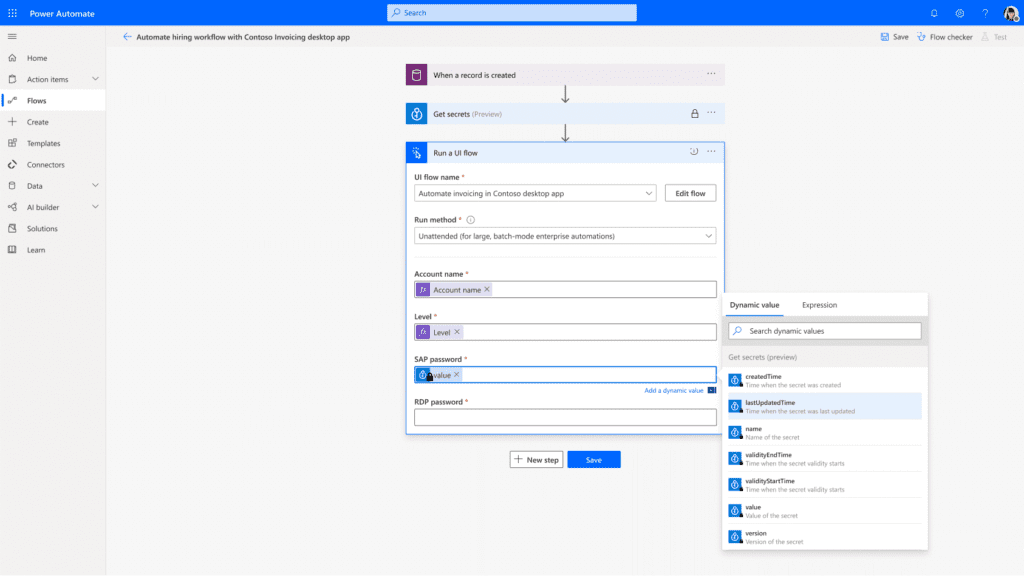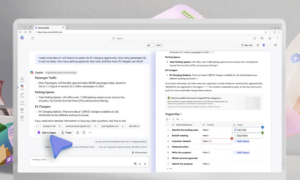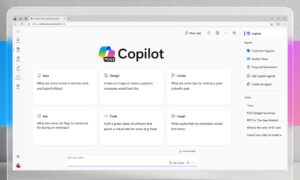As part of your investment in the cloud you may have already considered security, backups, and analytics, but have you considered how automation in the cloud can also benefit you? Automation is a broad topic with many avenues to explore and leverage. It is also one of the more important goals of your cloud journey.
More than ever, businesses around the world are leveraging Artificial Intelligence (“AI”) to minimize risk, optimize the workforce, and increase business ROI. As my colleague, Jason Bell discusses in his Automation in the Cloud series, technologies are quickly adapting and growing, making their availability and accessibility much more attainable – especially within Microsoft 365 (as of April 21, 2020, formerly known as Office 365)
Artificial Intelligence

© Microsoft 2020
By now you are probably aware of or have seen some manner of AI in action (possibly without even realizing it), but what exactly is it? Simply put, AI uses algorithms and data to mimic human intelligence. Leveraging AI can be particularly useful in completing repetitive tasks that do not require human analysis or input. For example, when purchase orders under a certain dollar amount do not require manual approval, they can be processed without human intervention using AI. AI helps free up your workforce to prioritize and take on more complex tasks thus increasing productivity.
You may have missed it, but Cortana just turned 6, and “she” is truly reaching maturity. With recent updates regarding scheduling and “play my emails,” she continues to evolve beyond a search assistant. The Outlook Insights add-in – which is included in most Microsoft 365 plans – is helping users focus on critical items and not get lost in the sea of emails. Finally, with Project Cortex set to be released before the end of June, the continued application of AI will further help streamline business processes and expose areas of improvement and automation. And these solutions are just the tip of the iceberg of what your Microsoft investment provides you.
Robotic Process Automation
Most traditional workflow automation tools are created by software developers that leverage application programming interfaces (APIs) to automate a task using a list of actions. However, robotic process automation (“RPA”) focuses more on automating a process by “watching” users perform actions and tasks in an application’s graphical user interface (“GUI”), and then repeats these tasks directly in the GUI. This is a big advantage because with RPA you do not need to build an API to accommodate interaction with legacy systems.
Robotic process automation allows for faster processing of repetitive human actions and reducing clicks. For example, let us say that you have an Excel spreadsheet with 10,000 users and you need to add all of those users to a legacy software application. Using RPA software, such as Microsoft’s UI Flows, you would record the clicks and keyboard inputs needed to add a user to the application and then let the RPA software read the Excel spreadsheet line for line repeating all those steps until all users have been added. This will greatly reduce the time needed to complete this process and minimize risks and errors.

© Microsoft 2020
Bring it All Together
Leveraging these technologies your organization can extract meaning from complex data, learn by example, and perform repetitive tasks that could otherwise take hours to complete. Something that was once thought of as impossible or unrealistic is now a part of our everyday lives and is increasing business growth every day. It does not stop there, leveraging these technologies in conjunction with your traditional business tools can make for very powerful solutions that do not cost your business hundreds of thousands of dollars to implement. Furthermore, if you are already invested in Microsoft 365, there is a good chance you already have access to start leveraging these technologies in the cloud today at no additional cost.
With the power of the cloud and the power of artificial intelligence, you can rethink the way business is done and empower your workforce to focus on higher-skilled tasks. Engage with Abel Solutions and get a solid return on your cloud investment.
This month’s Insight was written by Abel Solutions Jaison Barnes, Manager, Business Process Improvement.







